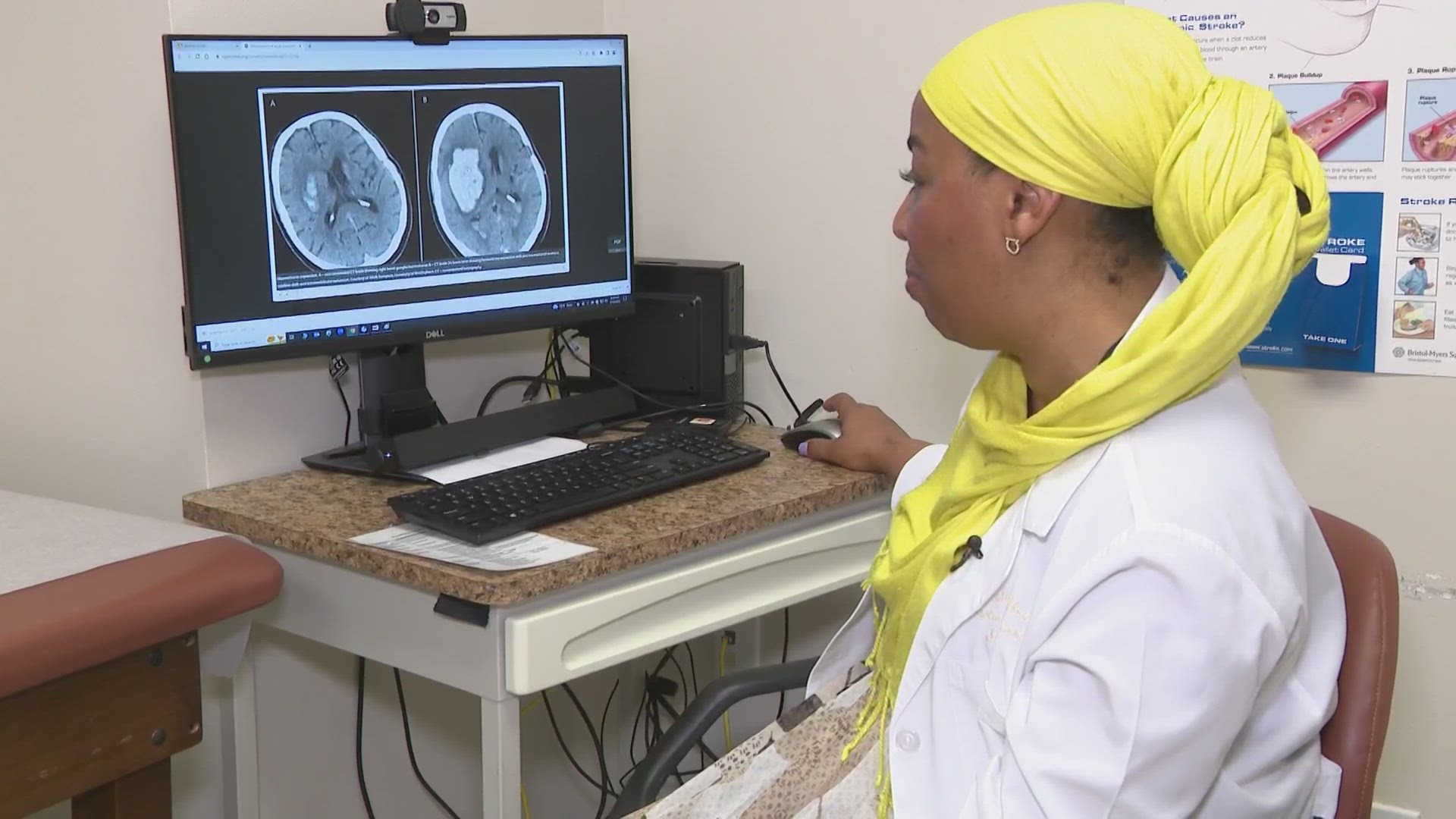HOUSTON — On April 12, 2022, Joyce Wiley suffered a stroke. It's a day she remembers all too well, despite strokes taking a serious toll on your memory.
"I felt bad, it was unusually bad," she said. "I had a headache that I couldn't get rid of."
Ms. Wiley said she immediately called 911 and when first responders arrived and asked her for her medicine, she just threw it in their hands because her head was hurting so bad.
Ms. Wiley was having a hemorrhagic stroke. That's when a blood vessel bursts in your brain. The leak causes brain tissue to die.
"That stroke, even though it's about 15%, is more likely to be associated with morbidity," said Dr. Anjail Z. Sharrief, a neurologist with UT Physicians. "So a lot of disability after stroke and higher risk of dying from that type of stroke."
Time is critical after suffering a stroke. Loss of brain cells is determined by each minute that a stroke goes untreated.
Thankfully, Ms. Wiley made it to the hospital in time, but it was during the recovery process that she realized she would need to become an advocate not only for herself but other stroke survivors.
"We don't have the resources," she said. "We have to depend on our primary care physicians, who don't know anything about strokes because they haven't had the training on the brain."
Ms. Wiley, who once sat on several boards, has since slowed down and has this word of advice.
"Be an advocate for your body. Listen to your body. If you think something is wrong and you're not seeing the right doctor, keep at it because there's a doctor somewhere that can help you," she said.
The signs of a stroke are not that hard to remember, especially if you remember the word "B.E. F.A.S.T."
"B.E. F.A.S.T" is a helpful acronym to know that could potentially be lifesaving. It stands for:
- Balance loss
- Eyesight changes
- Face Drooping
- Arm weakness
- Speech Difficulty
- Time to call 911
Strokes are preventable, up to 80% in fact, if you address the risk factors. One of the major contributing factors is high blood pressure.
Read more articles from our Health Matters series here.
UT Physicians is an advertiser with KHOU 11.

